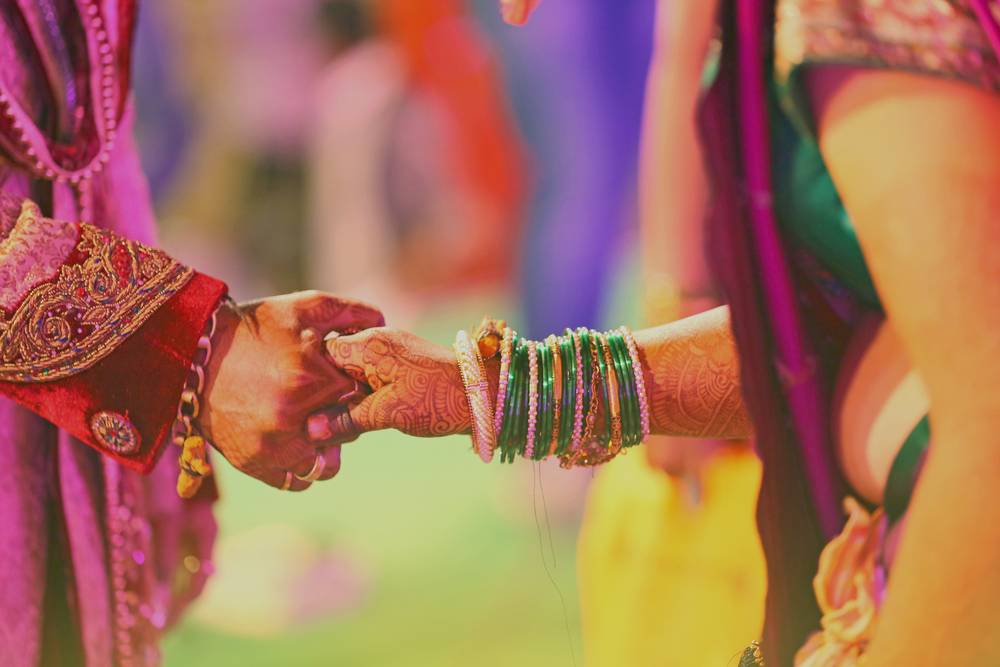The application form for a court marriage in Chandigarh is available online at the Indian Court Appointments Department (ICDA). Once applied for, the applicant can proceed to select his or her favorite judge. It is necessary to fill in the application form with as much information about the parties involved as possible, including their respective ages, religious beliefs and other relevant details. The gender preferences given on the forms are also specified by the government, and a list is generated to select a suitable candidate. The next step is submitting the form to the concerned office, which sends it back to the applicant. The complete form is then sent by mail, usually within one month. The government in India has created separate posts for the judges who handle marriages, including a registrar of courts. All such posts have now been abolished since Chandigarh was incorporated into the Indian union in 1954. However, the law still reserves for the guardianship of minor children, and the process for accomplishing this is not quite clear. In the earlier period, most of the marriages were arranged by the parents of the bride and the groom, with the involvement of a marriage bureau that registered the wedding and selected the marriage partners. With the progress of time, however, the process has been altered to suit the different religions prevailing in the country. For instance, Muslim law does not allow a non-Muslim to enter into the Muslim-dominated areas of the country, whereas Hindu law allows marriages without any compulsion of religion. Christian marriages are normally voidable, while Jewish weddings are not recognized by the rabbis. In most of the courts in India, the bride has to walk with the groom's hand and is not allowed to sit on the chair with her groom. The reason being that it is believed that the hands of a girl belong to her groom and the foot of a boy belong to his bride. This is also applied in a typical arya samaj mandir where the girl is seated facing her groom with her right foot placed on the floor. It is believed that a girl who looks at her groom without any eyes or without any desire to marry her will be surely married to her mate. In fact this is one of the key vows of a Hindu wedding that the bride and groom take and the presence of both the eyes of a girl shows that she has taken this vow.
Court Marriage is a common procedure, which has to be followed by everyone. If a marriage is not registered it is not considered valid during legal procedures such as, applying for a joint home loan. You could also be fined for not registering your marriage. It is a rule that all the marriages have to be registered whether you are having a wedding ceremony or not.
A marriage certificate is an important proof, in case there are some problems between you and your spouse in the future and a legal action needs to be taken.
Advantages of Court Marriage Certificate:-
• Certificate of Marriage is a document, which provides valuable evidence of marriage;
• Certificate of Marriage is a document providing social security, self-confidence particularly among married Women.
• Court Marriage Certificate is useful in getting the visa for the wife/husband.
• It will be helpful in claiming the Bank deposits or Life Insurance benefits when the depositee or the Insurer dies without a nomination or otherwise.
Documents required for the Performance & Registration of Court Marriage
1. Passport Size Photographs – four each of Marrying Persons.
2. Residential Proof (Voter Card / Passport / Ration Car / Driving License / Bank Passbook / Lease Deed / Rent Deed) of Marrying Persons.
3. Date of Birth Proof (Municipal Corporation Certificate, X th or XII th Examination Certificate, Passport, PAN Card) of Marrying Persons.
4. If any party is divorcee Certified copy of Decree of Divorce granted by the Court.
5. If any party is widow / widower Death Certificate of the dead spouse.
6. If any party is a Foreign Citizen or holding a foreign Passport or is having foreign residential address – Certificate of Present Marital Status of the party / No Impediment Certificate / NOC from concerned Embassy and Valid VISA.
7. Two Witnesses (Both should be major)



